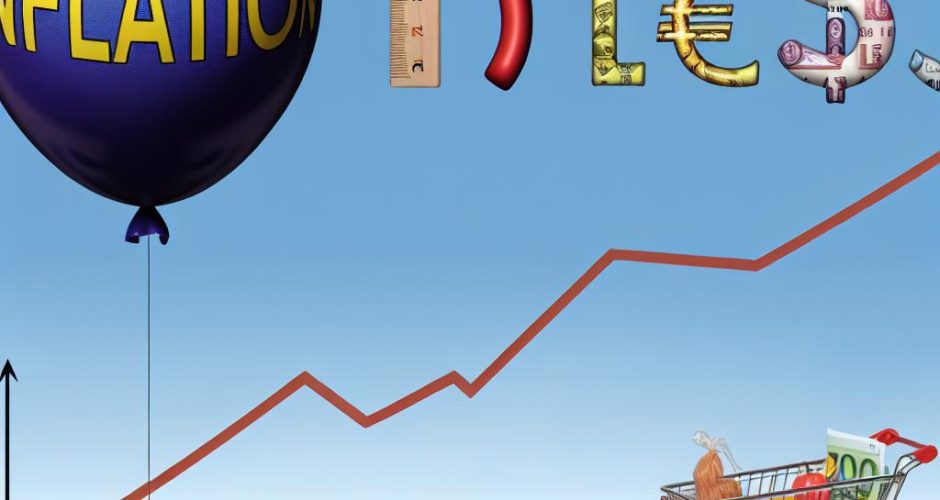What is Inflation?
Inflation is a critical economic concept that refers to the rate at which the general level of prices for goods and services increases, consequently reducing purchasing power. When inflation occurs, each unit of currency buys fewer goods and services than before, which means that currency loses value over time. Inflation is typically quantified by metrics such as the Consumer Price Index (CPI) and the Producer Price Index (PPI). These indices track the price changes in a basket of goods and services over time. While a moderate level of inflation is often a sign of a growing economy, excessive inflation can have severe repercussions, leading to economic instability.
Causes of Inflation
There are several causes of inflation, but two primary sources are generally recognized: demand-pull inflation and cost-push inflation.
Demand-pull inflation occurs when the demand for goods and services outstrips their supply. In this scenario, because there are more consumers wanting a product than there are products available, prices are driven upward. This can happen in a booming economy where consumer optimism and spending increase.
On the other hand, cost-push inflation arises when the expenses associated with production inputs increase, compelling businesses to pass on those costs to consumers through higher prices. Factors contributing to cost-push inflation can include rising labor costs, increased prices for raw materials, and more expensive financing for business operations.
Monetary Policy and Inflation
Central banks, such as the Federal Reserve in the United States, utilize monetary policy as a mechanism to control inflation. They can manipulate interest rates and regulate the money supply in the economy. For instance, raising interest rates can cool down economic activity by making borrowing more expensive, which can help reduce inflationary pressures. Conversely, lowering interest rates can stimulate spending and investment but may lead to higher inflation if not carefully managed. The balance between promoting economic growth and controlling inflation is delicate and is a principal focus for central banks worldwide.
The Impact of Inflation on Your Money
Inflation directly affects the value of money, influencing how much one can purchase progressively over time. As prices rise, the purchasing power of money decreases, affecting different components of personal finance such as savings, investments, and salaries.
Effect on Savings
Inflation impacts savings by reducing the real value of saved money. If the interest earned on savings does not exceed the inflation rate, the purchasing power of those saved funds will decline. Therefore, when planning for long-term savings, it is vital to consider inflation. Strategies that involve inflation-adjusted instruments or products that can potentially outrun inflation should be part of one’s financial planning.
Investments and Inflation
Investments can often act as a safeguard against inflation. While traditional savings options may diminish in value over time due to inflation, certain types of investments can yield returns that surpass inflation rates. Stocks, real estate, and in particular, inflation-linked bonds offer potential protection against inflation. By ensuring a diversified investment portfolio, individuals can better absorb the impact of inflation. The aim is to ensure that at least part of one’s assets are invested in vehicles that offer higher yields, thereby preserving or even enhancing buying power.
Wages and Inflation
Inflation also affects wages, ideally calling for an increase in wages to offset rising prices. In theory, wages should follow inflation rates to maintain buying power for workers. However, this alignment doesn’t always happen. Wages may lag behind inflation, especially in stagnant economic conditions or specific industries, resulting in a fall in the real income for many workers.
The difficulty is compounded in situations where inflation spikes drastically, and adjustments in wages lag, causing financial strain for many individuals as their day-to-day expenses increase faster than their income. Wage negotiations and policy interventions are critical in such scenarios, aiming to ensure that wage growth aligns more closely with inflation rates to maintain standards of living.
Summary
Grasping the concept of inflation and recognizing its influence on personal finance is crucial for effective financial planning. Understanding what drives inflation, as well as its effects, empowers both individuals and businesses to make informed decisions to safeguard their financial health. Utilizing financial tools such as diversified investment strategies and inflation-indexed savings accounts can mitigate potential losses due to inflation. For those seeking a deeper expertise, accessing government publications and economic research provides valuable insights into broader inflation dynamics and best practices for financial protection.
This article was last updated on: May 1, 2025

